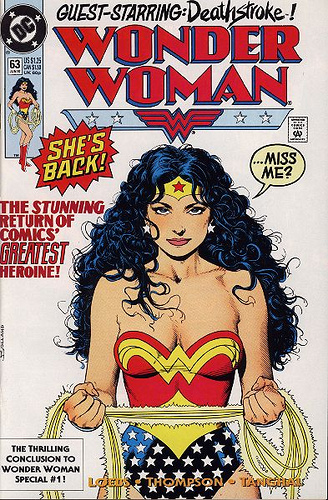I don’t see many movies on the big screen these days, but I made the effort to see WONDER WOMAN after reading several good reviews and hearing an interview with Jill Lepore, who wrote an entire book about the history of Wonder Woman. The film was directed by Patty Jenkins which was, for me, an additional reason to see it. I am always eager to support women in film. It is no news that stats for women working in Hollywood today are dismal.
I am glad I went. The movie is probably half an hour too long, and the endless fight at the end bored me, BUT before that I was entranced. The lead actress, an Israeli named Gal Gadot, is riveting. She was a combat trainer in the Israeli Defense Forces, and the blasé way she knocks off obnoxious men in the early part of the film is truly satisfying. There is much more I could say about how the film succeeds in rising above Hollywood norms and avoiding many sexist clichés, but I want to comment on the writing.
When I speak of writing I don’t mean the dialogue which is—as is often the case in superhero movies—sometimes too expository or on-the-nose (people saying exactly what they’re thinking). What is masterful about the writing of this film—and worthy of study for any serious writer—is the integration of three structural elements. The first is the Greek mythology of the Amazons where Wonder Woman originates (as was established in the comic book version of her created in 1941). The film opens in this fantastical female-only Amazonian world, an idyllic island in the Mediterranean. The film gets underway when this world collides with the warring world of men in the twentieth century—the second important structural element—World War I in England and Germany. The third critical element is the familiar narrative arc of the Hero’s Journey, as described by Joseph Campbell and Christopher Vogler. The integration of the first two elements creates a fish out of water story which provides good comedy as well as narrative drive. Wonder Woman’s mission to rid the world of war follows the beats of the Hero’s Journey, giving the story its strong backbone. Deploying and unifying such elements is not easy and it is worthy of study for any writer interested in experimentation and breaking new ground.
Photo credit: jooleeah_stahkey via Visualhunt / CC BY-NC-ND

Add Comment